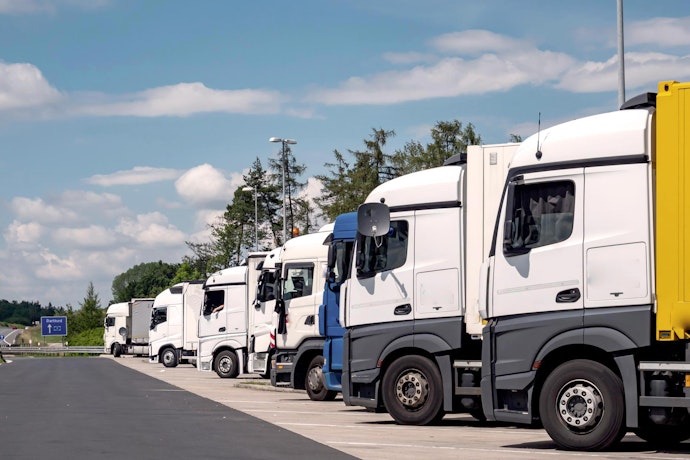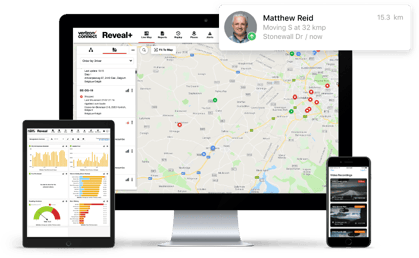9 Secrets to Reducing Fleet Expenses
As a fleet owner, your day-to-day costs can quickly add up. What you don’t know is there are further hidden, expensive...
Read more
The digital tachograph is a valuable tool for fleet managers to monitor the activity of their drivers—including driving hours and rest times. In a competitive industry, this data is vital both for simplifying compliance management and for helping increase operational activity. Digital tachograph cards are a key component of the tachograph system and help streamline the process of recording and accessing driver data.
In this article, we’ll take you through what you need to know about tacho cards.
Tachograph cards form part of the overall digital tachograph system alongside the motion sensor and vehicle unit (VU) that are installed in HGVs, lorries and buses. Unlike analogue tachographs, the digital system records driver activity to two locations – the tachograph cards and the vehicle unit. The activity recorded includes all relevant information for operational compliance, such as driver ID, dates and times used, vehicles used and driving and rest times.
There are four types of card:
Here is an overview of each type of card, what they’re for and their features:
Commercial drivers require a driver card in order to drive vehicles equipped with a digital tachograph legally. Similar in appearance to a standard driving license, they are plastic photo ID cards. However, they also contain a microchip for recording and storing all driving activity over approximately the past four weeks (typically 28 days). This data can also be stored in the tachograph unit memory. Digital tachograph driver cards are unique to each driver, who must insert them into the VU driver slot of each vehicle they drive. The cards are valid for five years and must be produced to law enforcement officers on request, such as during a roadside check.
Company tacho cards are issued to fleet operators, who use them to download data about their drivers’ activity from the digital tachograph memory. The cards also allow operators to place locks on the driver data in order to prevent it being accessed by unauthorised third parties, such as other operators. The tachograph information not only helps fleet managers to simplify compliance with driving and rest time regulations, but also to optimise performance and assign jobs more efficiently.
These cards allow approved workshops to install and calibrate digital tachograph VUs. Workshop cards contain data logs on all system changes performed on the tachograph system, as well as the details of the workshop itself. For security reasons, they are protected by a PIN code. Workshop tachograph cards are valid for one year.
Law enforcement authorities use control tacho cards when performing roadside checks on vehicles. The cards allow them to access tachograph data in order to simplify compliance management and the proper usage of the digital tachograph. The authorities can use the card either to retrieve from a driver card or the tachograph vehicle unit. Furthermore, the control cards give them the authority to override any tachograph data locks put in place by operators.
The responsibility for issuing digital tachograph cards and the application procedures can vary from country to country. In Ireland, this is done through the Road Safety Authority (RSA). There are three ways to apply for a driver card: online, by post or in person. Online applications cost €45, while post applications cost €60. Note that for applying online or by post you need to take a printout of your application form to a Garda station. This is important since the Garda need to witness your signature and photo.
NOTE: Each driver must only possess one valid driver tachograph card. In order to ensure this, there is an EU-wide telematics network in operation, called TACHOnet. This network facilitates the automated exchange of tachograph card data between national issuing authorities across the EU.
Utilising a fleet management solution such as Verizon Connect can help you make the most of the digital tachograph in terms of compliance. For example, it can help you avoid costly fines due to human error like driving without properly inserting the driver tachograph card in the VU slot. With a connected digital tachograph from Verizon Connect, you can see the current readings for any of your drivers and set up the software to alert you if drivers are not compliant.
But the benefits go beyond simply adhering to driving hours regulations. Knowing the current compliance status of drivers can also help dispatchers assign jobs faster and more efficiently, based on up-to-date information available through the web-based dashboard. Furthermore, the fleet management solution gives you near real-time access to driver status, vehicle data and engine data, in addition to the tachograph data. All this information provides you with great visibility of your entire fleet, helping you make better informed operational decisions.
Tags: Data & analytics, Productivity & efficiency, Team management




Find out how our platform gives you the visibility you need to get more done.
As a fleet owner, your day-to-day costs can quickly add up. What you don’t know is there are further hidden, expensive...
Read moreVerizon Connect Reveal tracks the fleet data that can have a big impact on your business. These are things like where...
Read moreReveal tracks the fleet data that can have a big impact on your business. These are things like where your vehicles are...
Read moreWork smarter from quote to completion with an end-to-end fleet management solution...
Read more